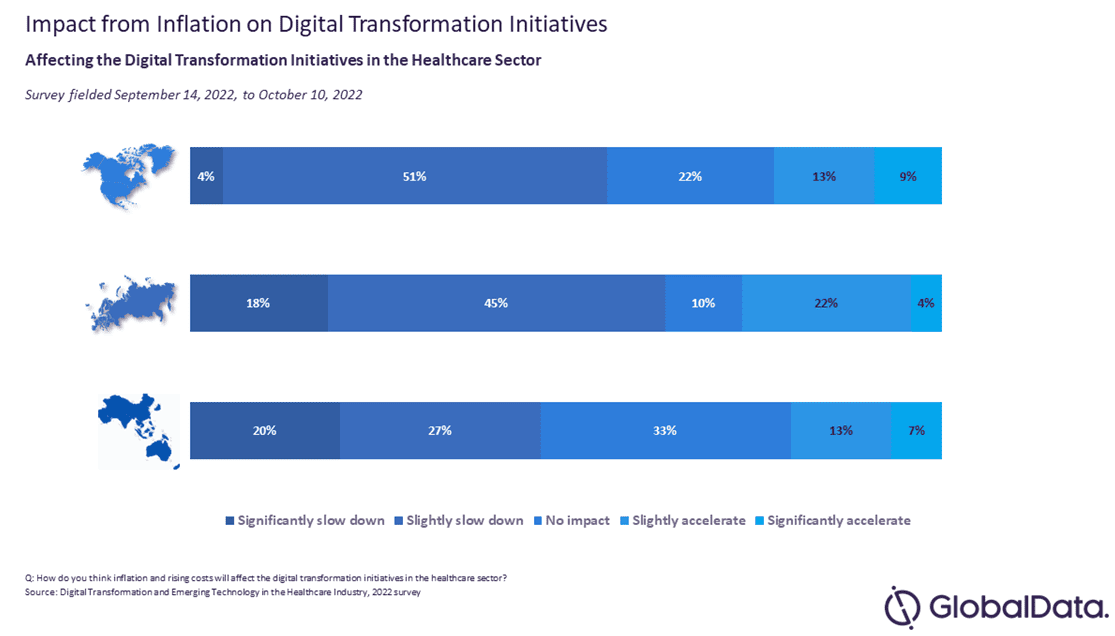According to a survey by GlobalData, 58% of global healthcare industry professionals believe that digital transformation initiatives would be slowed down due to inflation and rising costs. These digital transformation initiatives include the implementation of emerging technologies such as artificial intelligence (AI), big data, cloud computing, application programming interfaces (API), and others.
The survey in GlobalData’s ‘Digital Transformation and Emerging Technology in the Healthcare Industry – 2022 Edition report reveals that 63% of healthcare and pharmaceutical industry professionals in North America believe that inflation could cause a disruption to digitalization initiatives in their business. 55% of industry professionals in Europe and 47% in the Asia-Pacific region also have the same opinion.

Elton Kwok, Market Research Manager of Pharma at GlobalData, comments, “Rising costs of labor and raw materials has become a dominant topic of 2022. Inflation is expected to put some pressure on the profit growth of pharma businesses, resulting in reduced investment activities that may impact digital transformation projects. Digitalization requires funding, time, and talent; inflation and costs pressures may force companies to scale back focus and investment in these projects.”
Suggested reading: Wire19’s global listing of top 60 CIOs, CTOs, and digital leaders in the healthcare industry
On the contrary, over 20% of respondents in the survey are of the opinion that inflation may actually serve as a catalyst for digital transformation efforts, most likely due to technologies’ ability to drive cost reduction.
Kwok concludes by saying, “The benefits and advantages introduced by emerging technologies are still attractive to some companies, though they require a significant amount of time, labor and costs.”
For more details, get the report here.










